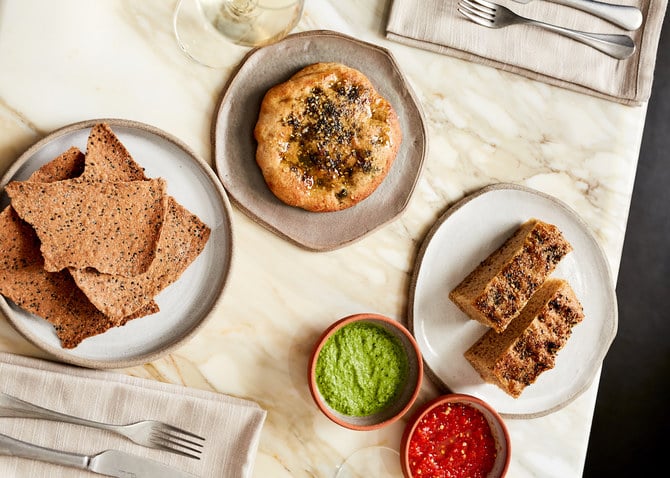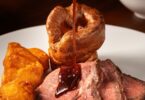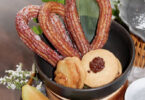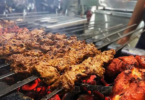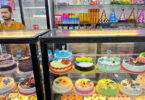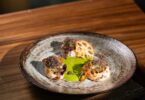LONDON (Arabnews): Palestinian cuisine has a historical and intimate connection to the land, reflected in the varying culinary traditions found across the territory.
But like many foods from the area, which share ingredients, dishes and cooking styles, Palestine’s rich culinary heritage is often hidden under the umbrella label “Middle Eastern,” or worse, “Mediterranean.”
In London, a new restaurant that opened on Tuesday is shining a spotlight on Palestinian cuisine — with a modern twist.
Akub is the conception of world-renowned Chef Fadi Kattan and his business partner Rasha Khouri, who celebrate Palestinian dishes by fusing traditional recipes with contemporary culinary techniques.
All of the fresh produce, meat and fish are sourced in the UK, attesting to Akub’s emphasis on celebrating local products and respecting seasonal changes. This value was instilled in Kattan by his grandmother, whose daily cooking followed the shifts in Palestinian markets.
“At 7:00 am in the morning, the doorbell would ring and there would be a farmer from the village next door with his or her produce for the day on sale,” Kattan told Arab News.
“Things have changed a bit and of course when you are in a big city, farmers don’t do that, but we try to preserve that tempo in our restaurant setting,” he added.
Meanwhile, the dried spices and olive oil are imported by Palestinian suppliers, particularly fair trader Zaytoun.
Kattan focuses on recreating taste with a different texture or recreating texture with a personal spin on the taste.
“I will never compete with the recipes of Palestinian grandmothers. But I think I have enough vision to take those recipes and make something different out of them,” he said.
Take mansaf for example, which is eaten with the hands by scooping up food from a large platter. At Akub, it is served as little mouthfuls, with the rice, meat, and fermented yogurt globed in thin deep-fried bread. The crunch gives the Bedouin dish a unique structure.
Shish barak, which traditionally consists of meat dumplings cooked in yogurt sauce, is instead served with a colorful presentation of beetroot tahini.
Kattan, who personally greeted customers at the door on Akub’s opening day, believes the art of hospitality is more than just what is on a plate but involves the experience of dining as a whole.
The restaurant is housed in a three-story building in Notting Hill with an indoor courtyard covered by a glass roof.
The interior is inspired by the sights and smells of Palestinian scenery, with olive trees and jasmine filling the space and a color scheme centered on olive green, earthy pink, orange and sand tones.
The tableware is provided by a third-generation Palestinian ceramist, Nur Minawi.
Akub’s head chef spent five weeks in Bethlehem with Kattan, learning first-hand about traditional cooking techniques, whereas the rest of the team was booked in for a two-day cultural training.
Kattan hopes that his guests will leave his restaurant with a positive image of Palestine.
“You can travel miles through a plate, story, flavor or even a spice,” he said.
“I’d be very happy if dining at Akub inspired someone to book their next holiday to Palestine or book a Palestinian concert in London, if that is their entry point to the culture,” he added.

